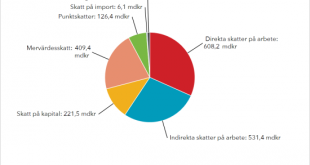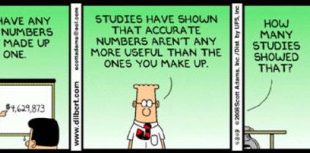Så återskapar vi förtroendet för nationalekonomi som vetenskap Nationalekonomin som vetenskap har världen över förlorat otroligt mycket i prestige och status under senare år. Inte minst på grund av dess oförmåga att se den senaste finansiella krisen i antågande och på grund av dess avsaknad av konstruktiva och hållbara förslag på att ta oss ur krisen. Hur återskapar vi förtroendet för nationalekonomin? Fem förändringar är helt avgörande. (1) Sluta låtsas...
Read More »Why science is not a game of chance
Why science is not a game of chance If human scientists could be supposed to play a system of analogous games of chance … the evidential support available for successful scientific hypotheses could be measured by a Pascalian probability-function … But unfortunately the analogy breaks down at several points. The number of co-ordinate alternative outcomes that are possible in any one trial of the issue investigated may be infinite, indeterminate, or at...
Read More »Hur kan EU återfå medborgarnas förtroende?
Hur kan EU återfå medborgarnas förtroende? Efter finanskrisen 2008 har antalet miljardärer nästan fördubblats i världen, enligt Oxfam. Sveriges miljardärer sitter idag på förmögenheter som motsvarar ungefär halva Sveriges BNP. Samtidigt har fattigdomen ökat, till och med i EU:s kärnländer. Och i Sverige ökar den relativa fattigdomen, skillnaderna mellan människor blir allt större. Sedan finanskrisen har regeringarna i samtliga EU-länder satt sin budget på...
Read More »Beware of health scare stories
Beware of health scare stories spiked: What is your take on the recent Lancet study that claims there is no safe level of alcohol consumption? David Spiegelhalter: This is a huge study that brings together published evidence from nearly 700 other studies. It is really about how much people are drinking around the world … In this study, the claim that there’s no safe level of drinking is the weakest part … What I do blame the authors for is that they only...
Read More »Tag der Mahnung
[embedded content]
Read More »We remember
[embedded content]
Read More »Det svenska skattesystemet
Och så undrar folk hur det kan komma sig att Sverige är ett av de länder där inkomst- och förmögenhetsskillnader ökar snabbast i världen …
Read More »Mervärde i skolan
Hur ska man avgöra hur bra en skola egentligen är? Att bedöma en skola vars samtliga elever är studiebegåvade, studiemotiverade och har starkt föräldrastöd efter samma mall som en skola vars elever kännetecknas av motsatsen är både missvisande och orättvist. Ett vanligt sätt att hantera denna problematik är att undersöka vilket mervärde en skola ger. Även om detta är konceptuellt enkelt så finns det stora problem med sådana mätningar. En skolas mervärde tas fram genom att...
Read More »Critical rationalism
For realists, the name of the scientific game is explaining phenomena, not just saving them. Realists typically invoke ‘inference to the best explanation’ [IBE] … What exactly is the inference in IBE, what are the premises, and what the conclusion? The intellectual ancestor of IBE is Peirce’s abduction: The surprising fact, C, is observed. But if A were true, C would be a matter of course. Hence, … A is true. Here the second premise is a fancy way of saying “A explains C”....
Read More »Political correctness eroding academic freedom in Sweden
Political correctness eroding academic freedom in Sweden Professor Emerita Inger Enkvist of Lund University, writing in Göteborgs-Posten on 23 September, said two trends are challenging open debate at universities. These are the trend to “protect students against thoughts that question their beliefs or feelings” and the tendency to treat gender perspectives as being above science … In her article, Enkvist said that all professors in Sweden now are aware...
Read More » Lars P. Syll
Lars P. Syll








